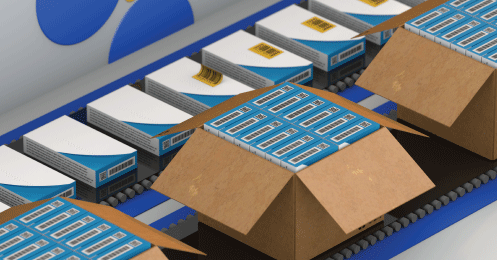With the increase in globalization, companies now face unique challenges that they must consider when expanding a business internationally. There are increased risks and barriers that companies must ensure they have a solution to. This makes it that much more important to have software that enables your company to operate your business in different locations around the world. The system that your company chooses must help your company manage its global operations as it considers the different communication and import/export barriers that it might face.
How Globalization Has Changed Global Operations Management
As a result of major advancements in both policy and technology over several decades, international trade and foreign investment have become central to overall economic growth. Governments have successfully negotiated international agreements that are responsible for reducing many long-standing barriers to trade and foreign investment, which has helped to promote the flow of goods and services between nations. Due to the elimination of many different barriers to trade and investment, large corporations have established foreign factories as well as production and marketing activities with foreign partners, essentially creating a true borderless economy.
In addition to foreign policies, emerging technologies have also played a key role in the globalization of the world’s economy by making it easier than ever to communicate with people across the world. Specifically, advancements in information technologies have provided many with access to a variety of tools for gathering information to help identify and pursue various economic opportunities.
Consequently, globalization has made it attractive for businesses to establish importing and exporting operations. Exporting represents a major component of the overall health of a nation’s economy, where countries are rich with unique skills and resources. Importing is also important as domestic businesses often look internationally for resources that are either a) not readily available domestically or b) inexpensive elsewhere, that will help to drive down their cost of goods sold and increase profit margins.
How ERP Software Can Help with International Expansion
In the world of operations, ERP software that helps you to easily connect and communicate with suppliers, partners and customers all over the world is key for expanding a business internationally. Here are some of the ways that a globalized ERP software can help your company navigate through a global supply chain.
Importing and Exporting
Tracking Landed Costs
One advantage that has become a top-of-mind factor for companies that import and export goods from all over the world is their ability to track landed costs. Landed costs represent an overall picture of the costs associated with getting inventory from a supplier to a destination. In addition to the supplier price per unit of inventory, landed costs will also include duty, brokerage, freight, insurance, storage, etc. By accounting for landed costs, you will be able to accumulate your true inventory costs. Therefore, you can confidently make more informed purchasing and pricing decisions while maintaining target margins, with the key cost factors listed above already factored into the equation.
Automating Customs Process
Another vital aspect of import/export software systems that businesses are finding increasingly important within their globalized operations is automated customs processes. Experienced import/export software vendors with knowledge in this field should be able to effectively streamline the process of dealing with customs documents. A system that can automatically generate a customs declaration form for a coinciding purchase order is key for your global importing and exporting company.
Communication Barriers
Providing Multi-Currency and Language Support
One of the most important aspects of running your global operations is to have effective communication amongst different parts of your operations worldwide. Multi-currency functionality is another feature that a robust ERP software system can provide. A multi-currency system will allow a company to specify different prices for each item depending on a customer’s currency and automatically account for differences in exchange rates between transaction and settlement dates. A good ERP system gives you the ability to send invoices and documents that are written in the correct language to customers, partners, and members of your organization all over the world.
Improving Collaboration and Responsiveness Through Real-Time Data
ERP software that provides real-time data allows all its users to be on the same page when it comes to data. Having real-time data within an ERP means people can receive status updates on time and respond quicker when situations arise. Responding quickly to pressing concerns is especially important in a globalized business that has so many different moving parts. Also, instead of using different subsets of data amongst different members of an organization, having real-time data reporting ensures that everybody is working with the same data. Regardless of location or time-zone, real-time data can ensure everybody is able to understand situations in the same way and help members work together to find solutions as issues arise.
Dealing with Different Time Zones
When working within a global business and supply chain, everybody is going to be working in different time zones. If a company in North America buys goods from distributors in China, they will have a 12–15-hour time difference that they will have to navigate. If a company’s supply chain decision makers such as their logistics or inventory managers are all in different countries, this will make supply chain management even more complex. People will likely be working at different times and collaboration becomes more difficult. Having ERP software that synchronizes the different time zones to show exactly when shipments arrived or were sent in the time zone that a warehouse is working is very important. Also, when every part of the company around the world is working with the same real-time data and reporting, it makes it much easier to manage time zone differences when expanding internationally.
Dealing with Long Lead Times/Shipping Times
When expanding internationally, it’s important to consider that having operations across a larger area is going to make it that much harder for goods to get to where they need to go. Not only will goods travel across further distances and spend more time in transit, but there will be more chance of delays and disruptions. In order to reduce lead times across borders, a company must ensure that they are purchasing/receiving as well as shipping the right amount of inventory at the right time. To ensure the maintenance of optimal inventory levels, a company must possess robust ERP software.










